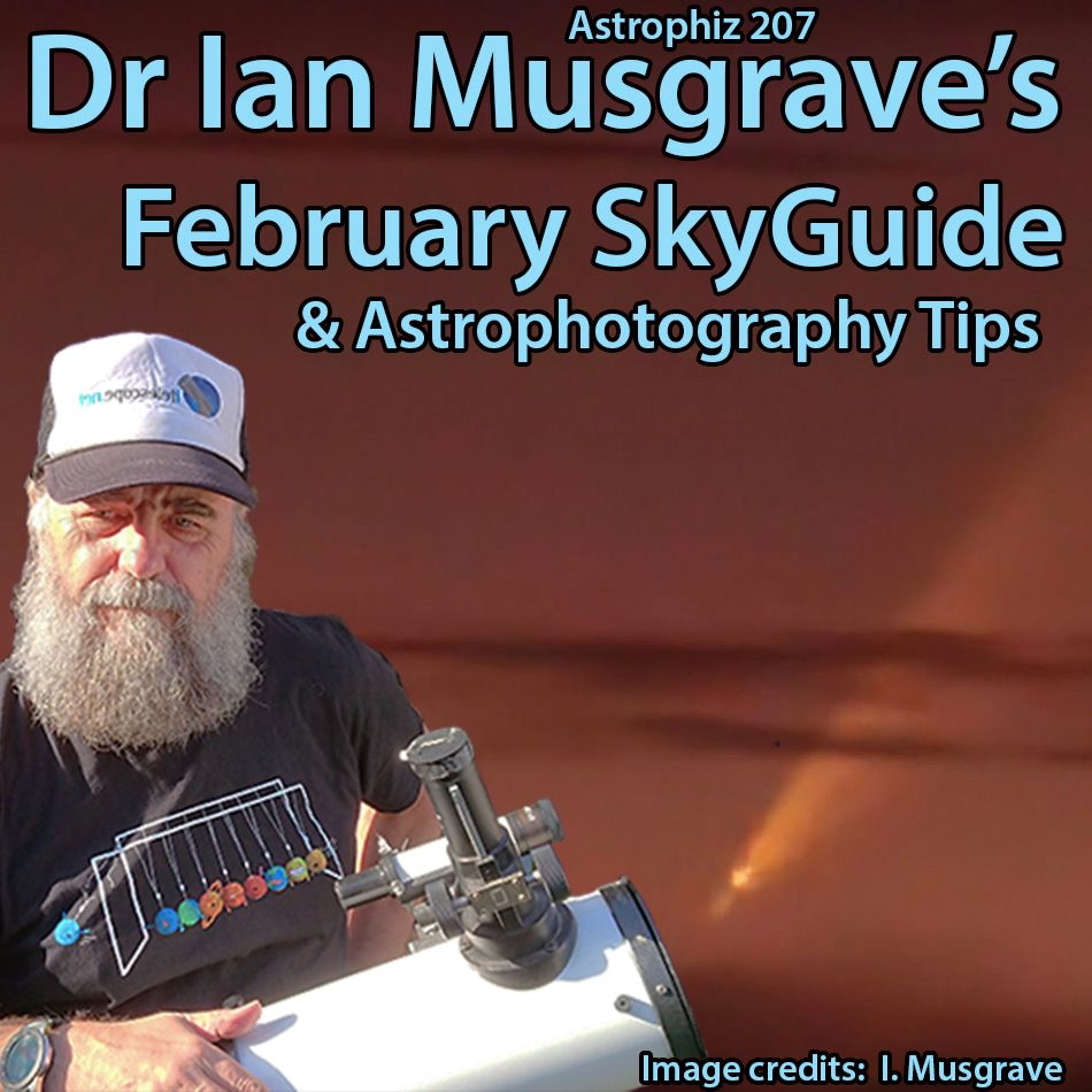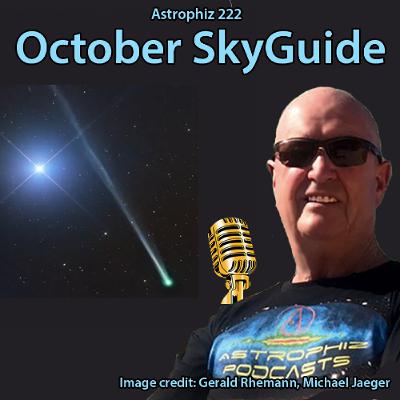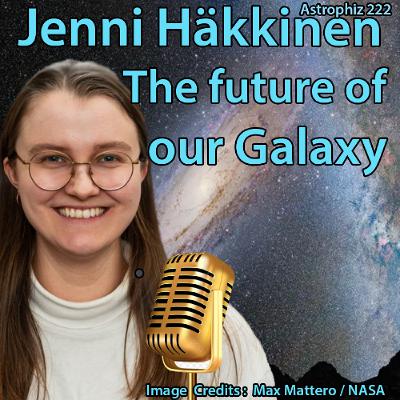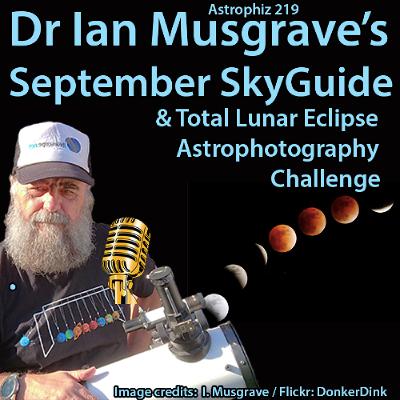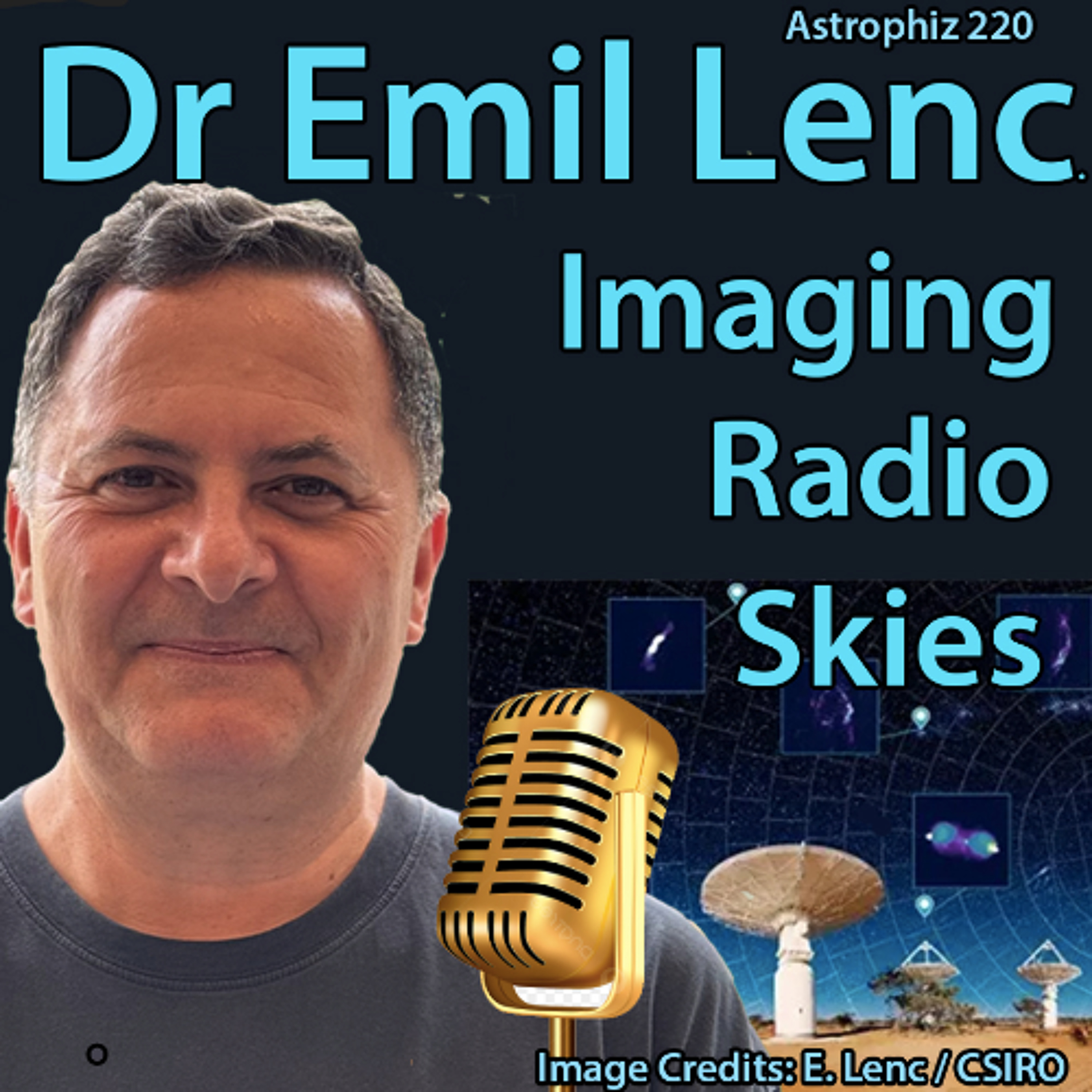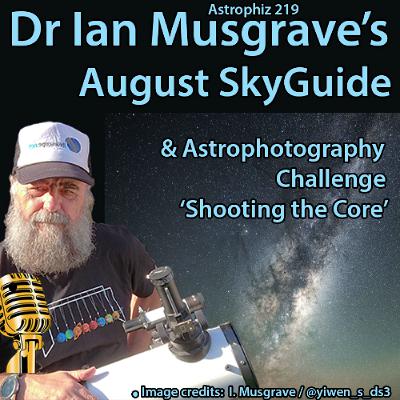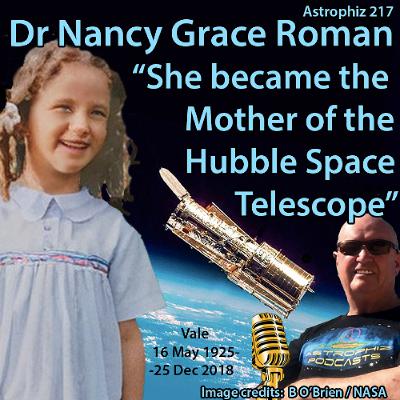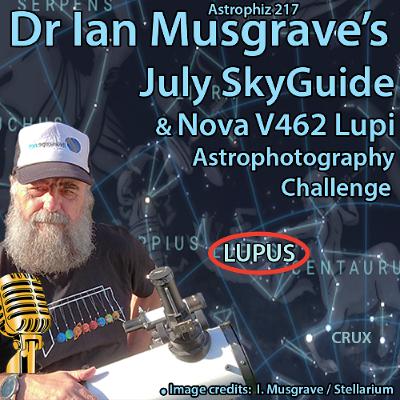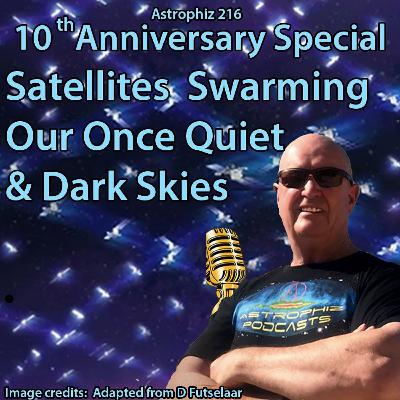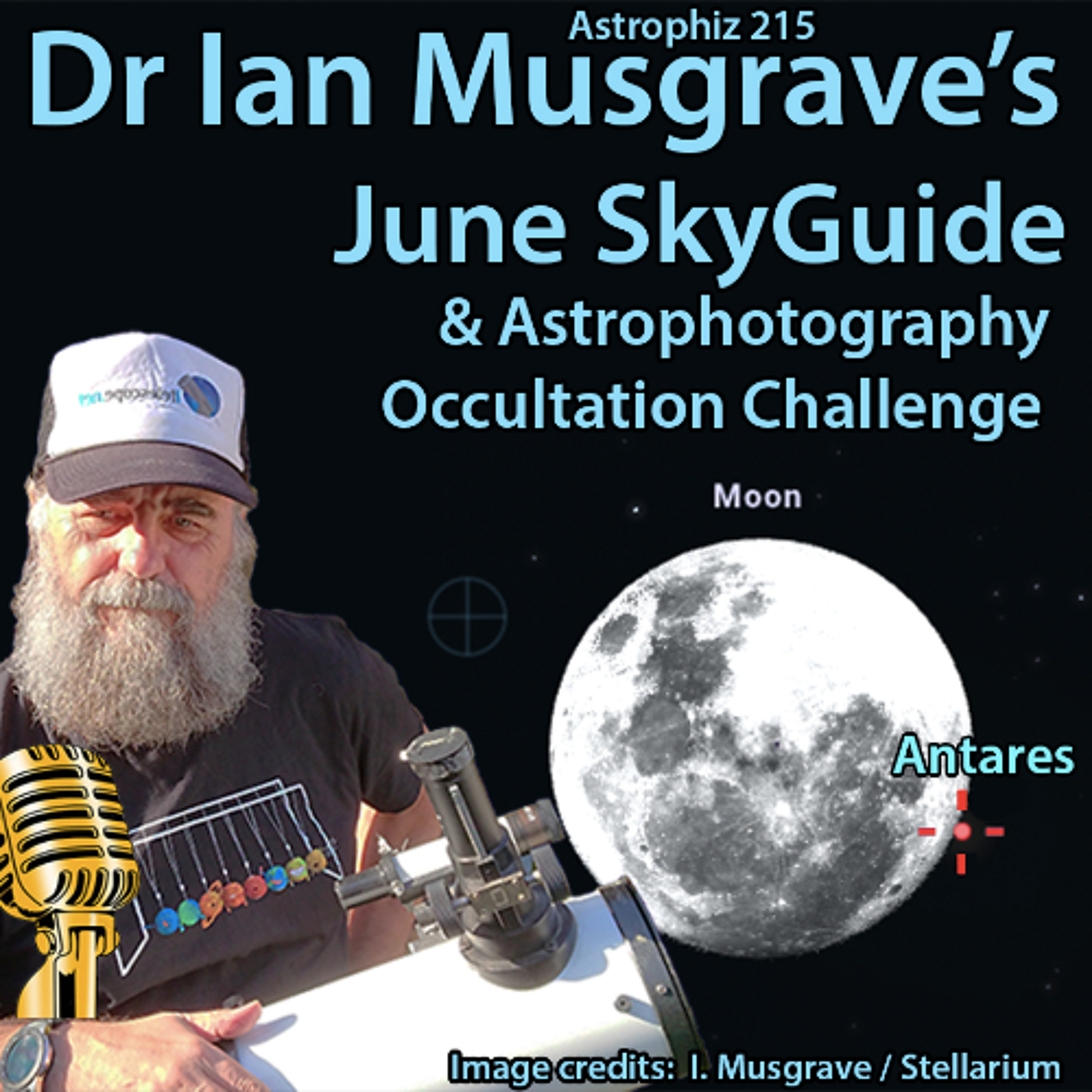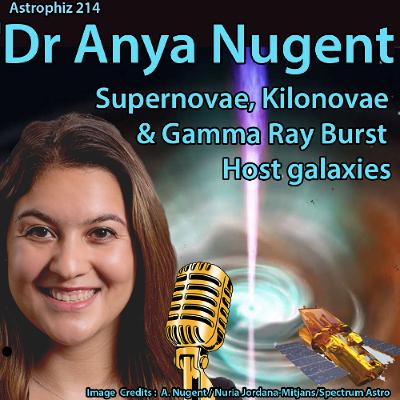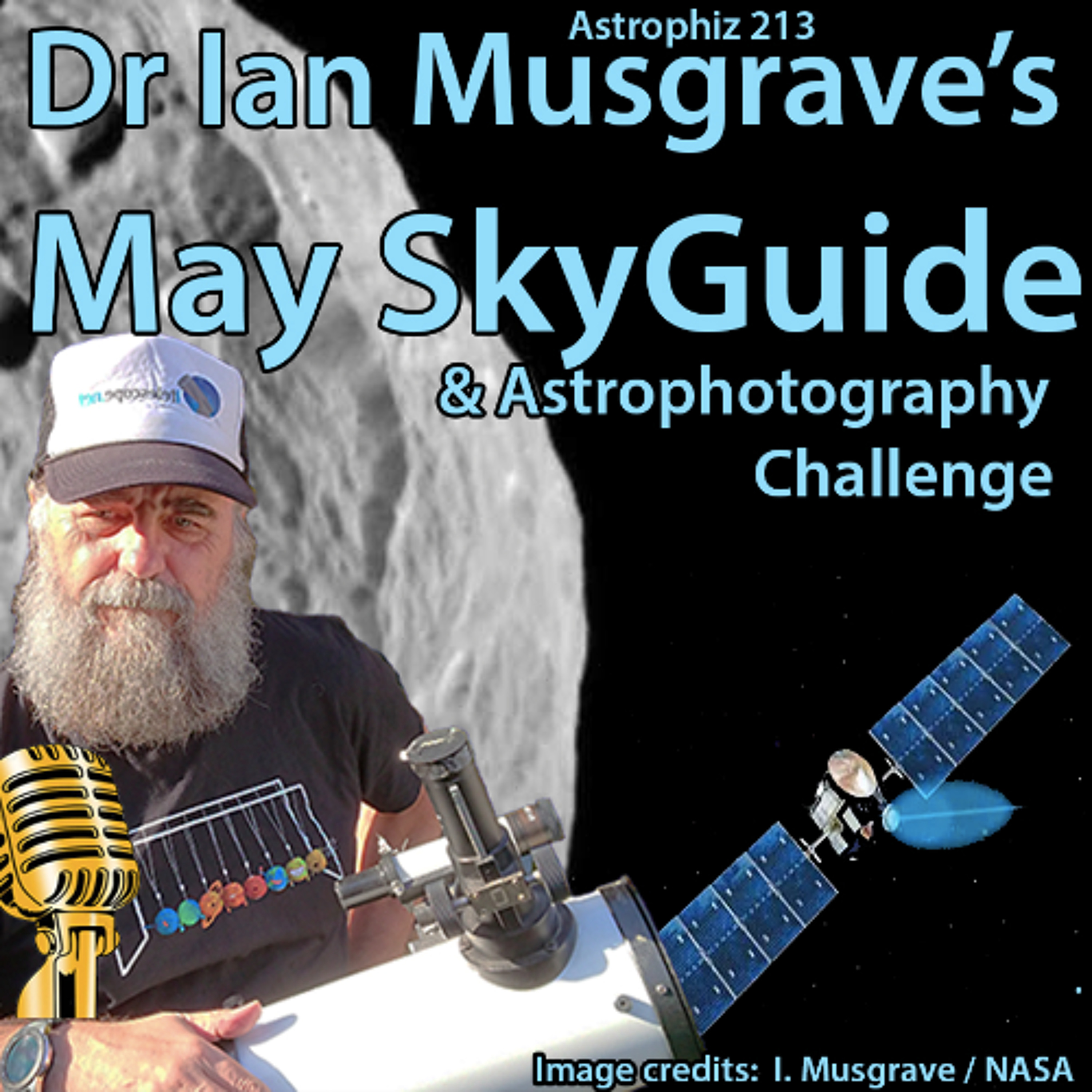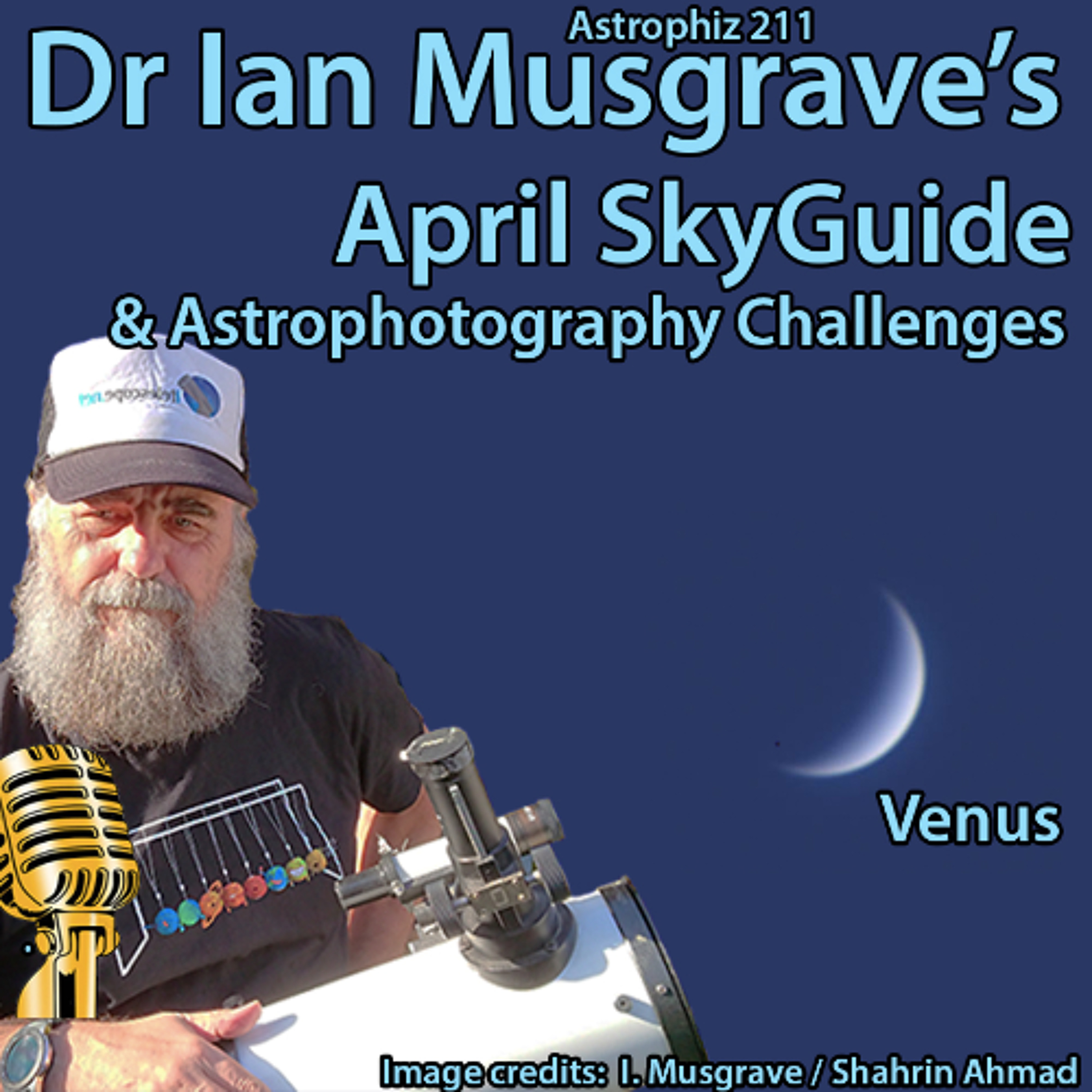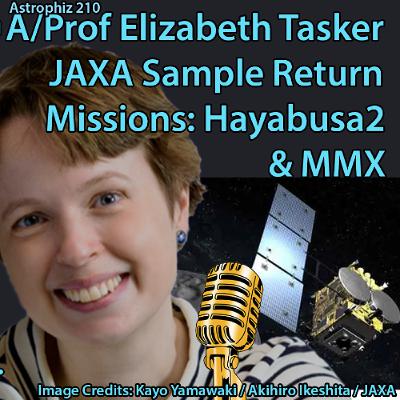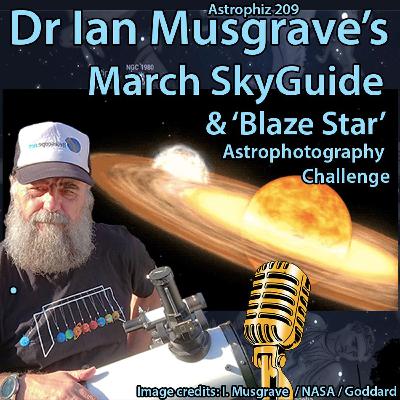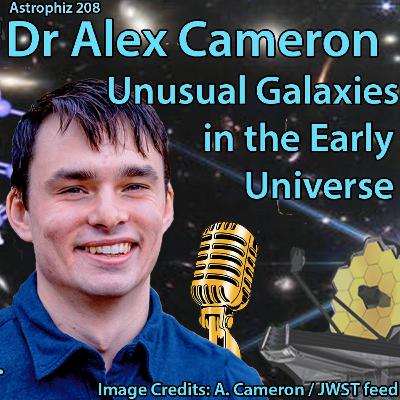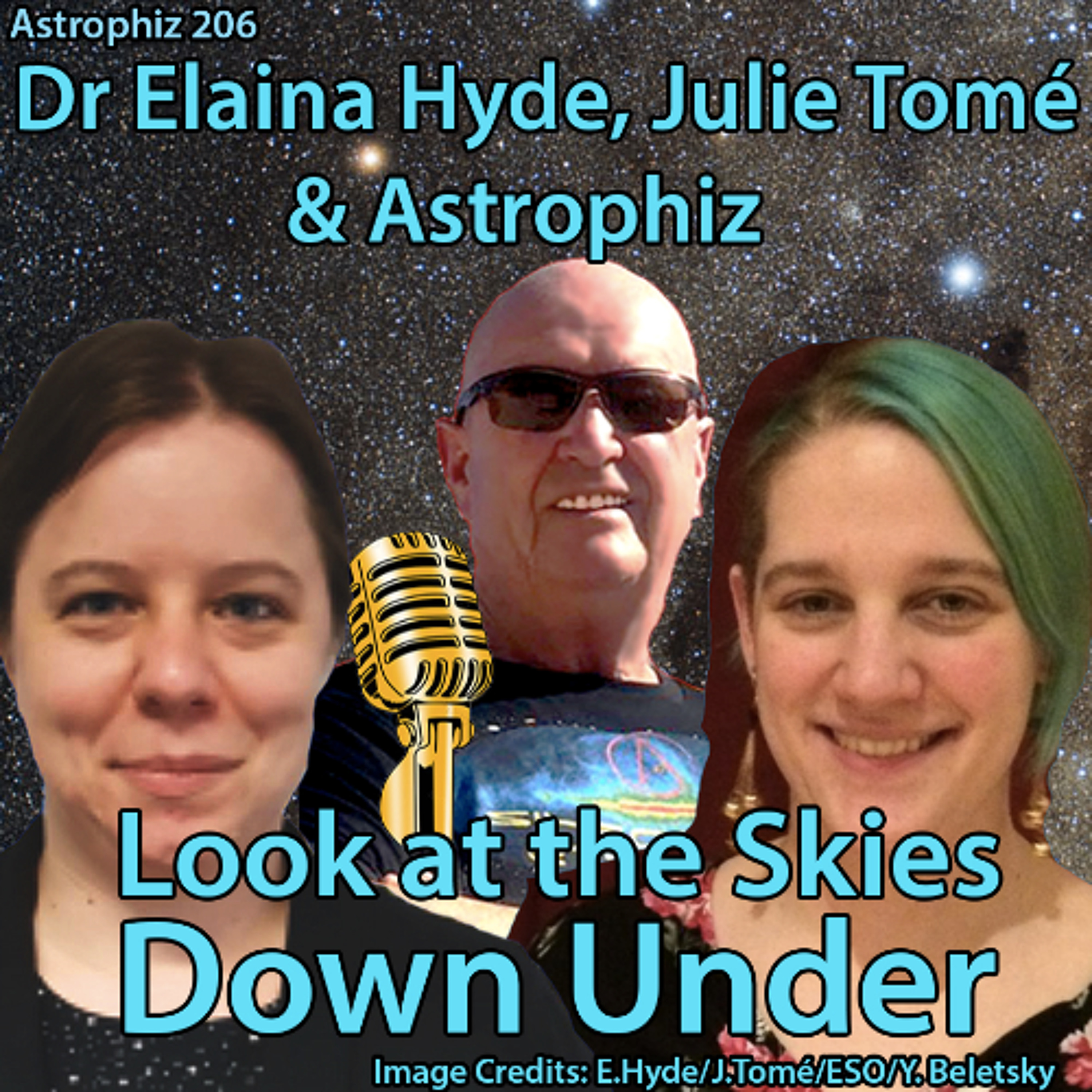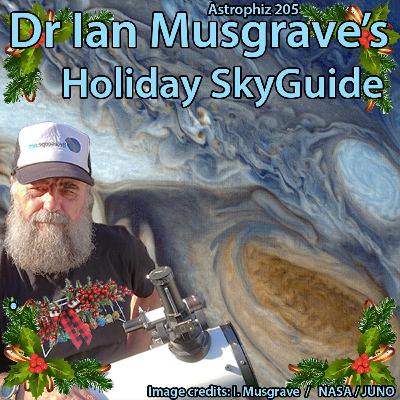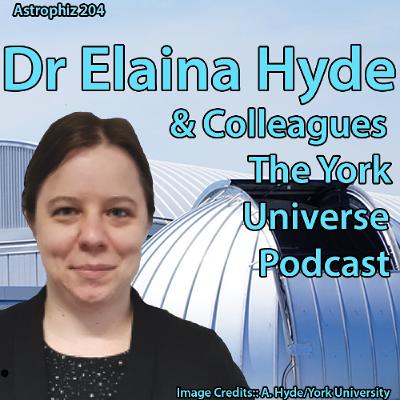Astrophiz207 - February SkyGuide
Update: 2025-01-31
Description
Dr Ian Musgrave brings us his February SkyGuide … telling us when, where and what to look for in the evening and morning skies this month, with some great astrophotography tips.
Listen:
Summary: February is again a wonderful month for celestial observers with a great lineup of planets in your evening skies/
February Moon Phases:
Feb 2 Moon at perigee
Feb 5 First quarter moon.
Feb 13 Full Moon
Feb 18 Moon at apogee
Feb 21 Last quarter moon
Feb 28 New moon
February’s Observing Highlights:
All the action in Morning Skies has now moved to the Evening Skies where we have a fabulous line-up of planetary action all month.
Saturn, Venus, Jupiter and Mars are putting on a marvellous visual display for us and blue Uranus is also relatively easy to find.
Venus, even though it is in crescent phase, is at its brightest this month,
As usual Ian gives us ‘Ian’s Tangent’ … and this month it’s all about present and future ‘Planet Parades’
and in two weeks we're zooming over to Oxford University to speak with Dr Alex Cameron, an amazing astrophysicist who has used the JWST to discover a new and most unusual class of galaxies in the very early universe, just after the big bang
Keep looking Up!
Listen:
Summary: February is again a wonderful month for celestial observers with a great lineup of planets in your evening skies/
February Moon Phases:
Feb 2 Moon at perigee
Feb 5 First quarter moon.
Feb 13 Full Moon
Feb 18 Moon at apogee
Feb 21 Last quarter moon
Feb 28 New moon
February’s Observing Highlights:
All the action in Morning Skies has now moved to the Evening Skies where we have a fabulous line-up of planetary action all month.
Saturn, Venus, Jupiter and Mars are putting on a marvellous visual display for us and blue Uranus is also relatively easy to find.
Venus, even though it is in crescent phase, is at its brightest this month,
As usual Ian gives us ‘Ian’s Tangent’ … and this month it’s all about present and future ‘Planet Parades’
and in two weeks we're zooming over to Oxford University to speak with Dr Alex Cameron, an amazing astrophysicist who has used the JWST to discover a new and most unusual class of galaxies in the very early universe, just after the big bang
Keep looking Up!
Comments
In Channel

